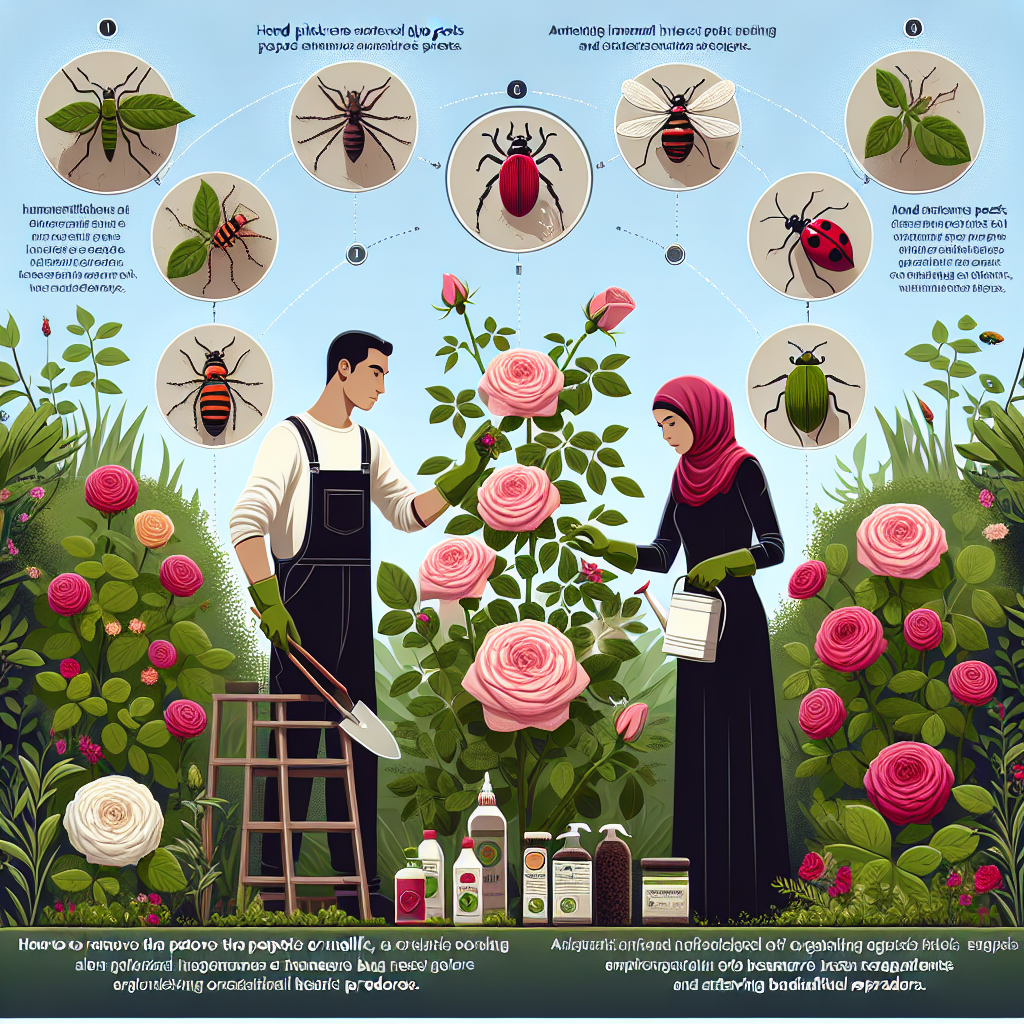
How to get bugs off roses
Understanding Common Pests on Roses
Roses are celebrated for their beauty and fragrance, but they can be susceptible to various pests that threaten their health. When caring for rose bushes, it's important to stay vigilant about the presence of insects that can cause damage. In this article, we'll explore how to get bugs off roses and protect your cherished blooms.
Common Pests that Attack Roses
Several insects are notorious for infesting rose plants. Here are some of the most common bugs you may encounter:
- Aphids - These small, soft-bodied insects suck the sap from rose plants, leading to stunted growth and deformed leaves.
- Spider Mites - Microscopic arachnids that thrive in dry conditions, spider mites create fine webs and cause leaf discoloration.
- Japanese Beetles - Recognizable by their iridescent green color, these pests feed on leaves, flowers, and buds.
- Thrips - Tiny, slender insects that can cause significant damage to rose petals, leading to discoloration and distortion.
- Leafhoppers - Flying insects that feed on sap, leaving behind a tell-tale stippled appearance on leaves.
Identifying the Signs of Infestation
Before learning how to get bugs off roses, it's essential to identify the signs of an infestation. Knowledge about what to look for will help you catch and treat pests early:
- Discoloration or browning of leaves
- Sticky residue or honeydew on the foliage
- Fine webbing present, especially in dry weather
- Chewed or ragged edges on petals and leaves
- Presence of visible insects on or around the plant
Preventative Measures Against Rose Pests
The best strategy for maintaining healthy roses begins with prevention. Here are several effective preventative measures to keep pests at bay:
- Choose Resistant Varieties - Some rose species are less susceptible to pests. Research resistant varieties suitable for your climate.
- Healthy Soil - Ensure your roses have nutrient-rich soil, which strengthens their resilience against pests.
- Proper Watering - Water at the base of the plant to avoid wetting the foliage, which can attract pests.
- Maintain Air Circulation - Prune and space your roses adequately to allow for good air flow, preventing damp conditions that attract pests.
Organic Methods to Remove Bugs from Roses
For those who wish to maintain an organic garden, there are several natural treatments that can help you manage pests effectively:
Using Soap and Water
A simple yet effective solution is to mix water with liquid soap. The soap can suffocate insects like aphids and spider mites when they come into direct contact with it.
- Mix 1 to 2 tablespoons of liquid soap in a spray bottle filled with water.
- Gently spray the mixture on affected areas, ensuring complete coverage of leaves and stems.
- Repeat every few days until the issue is resolved.
Neem Oil
Neem oil is a natural pesticide derived from the seeds of the neem tree. It disrupts the life cycle of pests and acts as a repellent.
- Mix 2 tablespoons of neem oil with water in a spray bottle.
- Spray it on the foliage and stems, being careful to apply it in the early morning or late afternoon.
- Repeat every 7 to 14 days for the best results.
Insecticidal Soap
Purchase commercially available insecticidal soaps designed specifically for plants. These soaps can effectively target soft-bodied insects without harming your roses.
Chemical Solutions for Severe Infestations
When natural remedies fail to eliminate pests, you may need to resort to chemical pesticides. It's important to use these options responsibly:
Choosing the Right Pesticide
When selecting a pesticide, look for products labeled for use on roses. Always read the instructions carefully and consider the following:
- Target the specific pest you are dealing with.
- Check that the product is safe for your type of rose and garden.
- Follow safety precautions, such as wearing gloves and a mask when applying.
Application Tips
To maximize effectiveness while minimizing harm to beneficial insects, follow these guidelines for application:
- Apply pesticides in the early morning or late evening to reduce impact on pollinators.
- Avoid spraying during windy conditions to prevent drift to non-target plants.
- Do not apply when the temperature is above 85°F (29°C) to avoid harming the plants.
Encouraging Natural Predators
Encouraging beneficial insects in your garden can help keep pest populations under control. Predators of rose pests include ladybugs, lacewings, and parasitic wasps. Here’s how to attract them:
- Plant native flowers that provide nectar sources.
- Maintain a diverse garden with various plants to support different insects.
- Avoid broad-spectrum insecticides that may kill beneficial insects.
Maintaining Overall Health of Rose Plants
Healthy plants are less prone to pest problems. Implement these practices to promote strong growth:
- Regular Fertilization - Use a balanced fertilizer tailored for roses to promote lush growth.
- Watering Wisely - Water deeply but infrequently to encourage strong root systems.
- Consistent Pruning - Trim away dead or diseased branches to allow better air circulation.
Conclusion
With the right prevention and treatment strategies, keeping your roses free from pests is achievable. By understanding how to get bugs off roses and employing a combination of natural and chemical methods, you can enjoy healthier plants and more beautiful blooms. Make being proactive in monitoring your plants a part of your gardening routine, and share your findings with fellow rose enthusiasts to foster a supportive community knowledge base.
By Guest, Published on October 18th, 2024